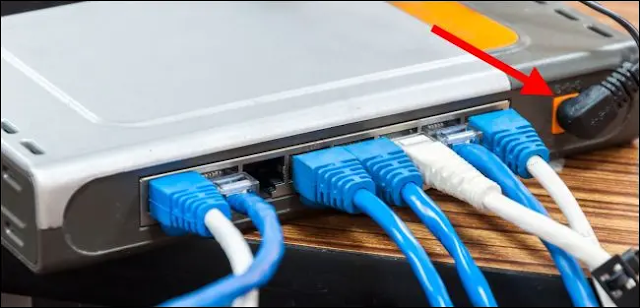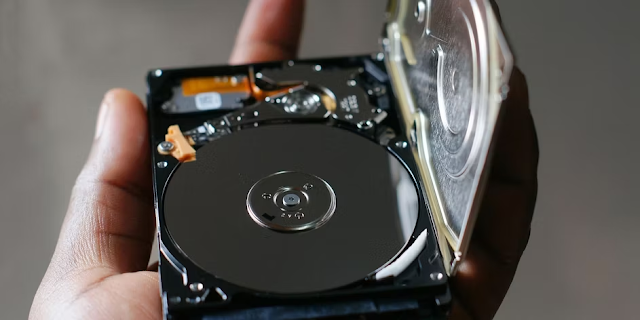How Come My Internet Is So Slow?
Your Internet connection could appear slow for a variety of reasons. It can be an issue with your modem or router, Wi-Fi signal, cable line signal strength, network gadgets hogging your bandwidth, or even a sluggish DNS server. You can identify the root of the problem using these troubleshooting procedures.
XEM THÊM :
Bật mí cách đánh tài xỉu giúp trăm trận trăm thắng
Narrow Down the Problem With Multiple Websites and Devices
You should try utilizing multiple devices in your home and connecting to several websites if your speed test reveals that your internet is slow. If only one website is experiencing a slowdown, the issue is probably with that website, not with your internet. There isn't much you can do about this other than wait for the website's administrators to make the necessary corrections.
You can solve the problem by focusing on a certain area. Do all of your devices experience the slowness, or is it just one computer? If it's only one computer, you know that's where the problem probably is. To make sure everything is in order, you could only need to restart the computer or you might need to run a malware scan with your choice antivirus program. It's almost probably a network issue if the slowness affects many devices, such as multiple PCs or your computer and your phone, in which case you must visit your router.
Check Your Speed and Compare It to Your Plan
It's good running a speed test using a website like Speedtest.net to assess how well it's truly functioning before going through a ton of debugging on your end. To ensure the least amount of interference with the findings, make sure to cease any downloads, uploads, Netflix streaming, and other intensive internet activities before conducting the test.
It's good running a speed test using a website like Speedtest.net to assess how well it's truly functioning before going through a ton of debugging on your end. To ensure the least amount of interference with the findings, make sure to cease any downloads, uploads, Netflix streaming, and other intensive internet activities before conducting the test.
There are several warnings in this. Because certain Internet service providers prioritize speed tests and may have servers located close to you, speed tests may occasionally appear to be rather high. It's acceptable if your connection speed seems a little slow; often, you pay for "up to" a specific speed, and you don't always obtain that precise speed. During busy hours of the day, when everyone in your neighborhood is using the Internet connection, speeds may also be slower than during off-peak times, when many people are sleeping or at work.
Of course, it's also possible that you are simply paying for a very slow internet plan, in which case you should contact your internet service provider and upgrade your service for a higher price.
It's time to proceed to the troubleshooting methods below, though, if you're paying for a specific connection speed and routinely getting speed test results that are significantly slower than that.
Reboot Your Modem and Router
Similar to computers, modems and routers occasionally become unreliable, slow, and overloaded. A reboot will resolve this issue. Rebooting your modem and router is a good idea right now if you haven't done so recently.
If your modem and router are one unit, you might only need to reset that one. However, there's a significant likelihood that both the router and the modem need to be rebooted. The modem is connected to the wire exiting the wall by the modem, which is connected to the router. Remove each from its corresponding power outlet for 10 seconds, then plug it back in to reset it. Be patient as your modem may need a few minutes to reconnect to your Internet service provider and get your Internet connection up. After the reboots, see if your speed has improved.
Improve Your Wi-Fi Signal
It's possible that your Wi-Fi, which is what links you to the internet, is having signal issues even though your internet is working great. Due to the fact that it can influence all of the devices in your home, a poor Wi-Fi connection can appear to be an issue with your Internet connection. You could have a weak Wi-Fi signal for a variety of reasons. If there are too many nearby devices, especially if you're utilizing 2.4 GHz rather than 5 GHz, which can accommodate a lot more devices, the airways may become congested. If you reside in an apartment complex with neighbors who have a lot of wireless routers and other gadgets, for instance, this is a problem that is more frequently seen in denser urban areas.
You can potentially have inadequate coverage throughout your home, a dead zone, or something interfering with your Wi-Fi signal. For extra advice, refer to our guide to boosting your Wi-speed Fi's and signal.
Consider purchasing a mesh Wi-Fi system, which offers numerous base stations you can position across your home or property, if you have a larger home or yard and require stronger WiFi coverage.
Stop Saturating Your Connection (or Try QoS)
All the devices on your network share your Internet connection, so additional devices on your network may be saturating it and slowing things down for everyone else.
For instance, everyone's experience would sluggish if two people are streaming Netflix and one is attempting to download a file using BitTorrent. To make things move more quickly, pause (or slow down) a few of those other downloads.
You might need to improve your internet plan if this is a particularly persistent issue. You can also check to see if your network has a Quality of Service (QoS) capability, which enables your router to automatically control and distribute how much bandwidth various devices and services receive. For instance, it can automatically limit BitTorrent traffic to prevent Netflix broadcasts from becoming sluggish.
Check for Coax Splitters
If you have cable Internet and coaxial cable splitters on the line leading to your cable modem, your signal strength may be declining and your Internet connection may be slower as a result. Splitters come in a variety of quality levels, and a subpar, inexpensive splitter could significantly reduce your signal strength. Additionally problematic might be a lot of splitters.
Try Another DNS Server
When your default Internet service provider's DNS servers are slow, you may be able to increase the apparent speed of your connection by changing DNS servers.
To connect to a website like google.com, for example, your computer first asks its DNS servers, "What numerical IP address is connected with google.com?" Once it receives an answer, it connects to that IP address, which might be something like 216.58.193.78.
Your Internet service provider often offers your DNS servers. However, if they are sluggish or congested, you might be able to improve speed by using a different set of DNS servers. Both OpenDNS and Google Public DNS are fairly well known.
Call Your ISP and Report the Problem
If you've tried all these troubleshooting techniques and still can't solve the issue, there's a significant probability you won't be able to. It might be an issue with your Internet service provider. A problem, for instance, could be with their equipment or the cable line connecting your home to your ISP. You should phone your Internet service provider in this situation to report the issue.
Your Internet service provider is responsible for fixing any issues with the connection on their end since you are paying them to maintain it. Make sure it is genuinely their issue and not one on your end, such as a weak Wi-Fi signal.
Read Article:











Comments
Post a Comment